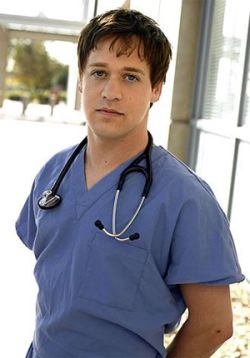Coming out at the doctor's? Many men find this superfluous. Sometimes a fatal mistake. Because openness can help to avoid misdiagnoses
Sometimes you only get better after coming out. This was the case for a man from Hamburg who struggled with an intestinal infection for six months last year. All attempts at treatment by his GP failed. Suspecting ulcerative colitis, a rare chronic disease, he finally tried Axel Adam. A friend had recommended the general practitioner to him.
The 47-year-old doctor has been working at the Infection Medicine Centre Hamburg (ICH), an HIV specialist practice with several locations, for 19 years. Adam is therefore always up to date on which sexually transmitted infections are currently most common. His first tip: chlamydia, a type of bacteria that is also transmitted during anal intercourse. The patient said yes, he could have been infected. A rectal swab confirmed the suspicion. Adam prescribed an antibiotic and after a week the patient was symptom-free.
Neither the family doctor nor the proctologist the patient had consulted had come up with this idea. But the patient had only spoken to a gay doctor about the crucial issue of anal intercourse. "If, as a doctor, I don't have anal intercourse on my agenda at all, then I just don't swab my patients," Adam states matter-of-factly. That's why his advice is: "Every gay person should come out to their trusted doctor." This is the only way he has the chance to make the correct diagnosis in an informed manner.
But in many doctors' surgeries, there is a great deal of bias - on both sides. "The doctor feels insecure when dealing with gay men, and the patient is quite happy not to be approached about his private life," summarises Steffen Taubert. He is responsible for the "Prevention in the doctor's surgery" project at Deutsche AIDS-Hilfe. Taubert encourages both doctors and patients to talk to each other as openly as possible, including about being gay. The aim is not just to recognise possible sexual transmission routes, but to give patients the chance to bring their entire identity into the treatment process in a relaxed manner. "It takes an enormous amount of strength to hide such an important part of your own identity," says Taubert. "Openness in this area can improve the entire communication between doctor and patient."
It is enough for the doctor to signal his or her open-mindedness towards different lifestyles. For example, by offering both genders when asking questions about relationships: "Do you have a girlfriend or a boyfriend?" The patient can then decide for themselves whether they want to take up the offer to talk. No empathetic doctor will open the door. "I certainly don't ask my patients first whether they are gay," emphasises Axel Adam. "If I do, then such questions arise during the anamnesis." During this initial assessment, every doctor also asks personal questions, for example about stress at work, as this can have a severe impact on health.
A study conducted by the University of Bayreuth in 2009 confirms Adam's experiences. On behalf of Deutsche AIDS-Hilfe, the researchers asked 30 gay men about their experiences with doctors. The result: the dialogue between doctor and patient becomes more intensive after coming out because both sides gain trust and no longer need to avoid sensitive questions. For example, patients who had come out were more willing to admit that they had not taken their medication as agreed. "If I have a good relationship with my doctor, I can also talk to him more openly about the risks of my lifestyle," emphasises Steffen Taubert.
Jan can only agree with this scientific observation. Since becoming HIV-positive, the 25-year-old has been attending a specialised practice in Hamburg. Gay patients are part of everyday life there. "You just feel better," says the hotel manager. "Everyone there knows what it's all about and I can talk more openly about sex."
The situation is completely different in the Baltic village where Jan learnt of his HIV infection in spring 2010. "It's a village, people know each other. I preferred not to come out to the doctor." It's different in Hamburg: "Everyone's crazy here. Being gay is also more normal there."
*Name changed by the editors
Text: Philip Eicker
Anyone who would like advice on choosing a doctor can contact the local AIDS service organisation The gay counselling service is also happy to help.
Links with further information on the topic:
Further training for doctors on dealing with gay patients
A French brochure for doctors on dealing with homosexual patients, published in January 2011 by the AIDS organisation AIDES:












